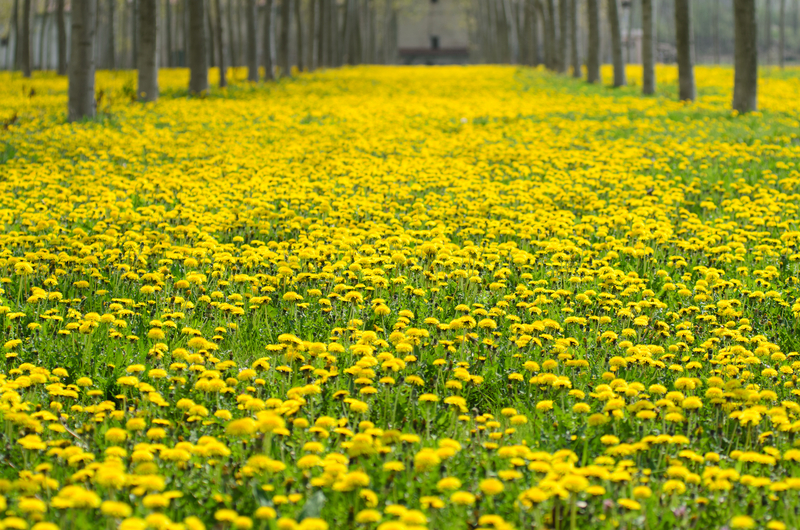Before You Take a Deep Breath Outside This Spring
April 15, 2022

You’ve got cabin fever and spring weather is beckoning you to enjoy the great outdoors. Before you venture forth–even if it’s just to your backyard—curtail allergic reactions to pollen that may cause you to have hay fever and start to sniffle and sneeze.
Causes and symptoms
The biggest spring allergy trigger is pollen from trees, grasses, and weeds that release tiny grains into the air to fertilize other plants. When these particles get into the nose of someone who’s allergic, they send the body’s defenses into high gear.
The immune system mistakenly sees the pollen as a danger and releases antibodies that attack the allergens leading to the release of histamines into the blood. Histamines are chemicals that trigger a runny nose, itchy eyes, dark circles under your eyes, and other symptoms that are familiar if you have allergies.
Pollen counts tend to be particularly high on breezy days when the wind picks up sneeze-inducing grains and carries them through the air. Rainy days wash away allergens.
Being inside may protect you from windblown pollen, but other seasonal triggers, such as mold and dust mites, can be prevalent inside your house and cause allergic reactions.
Diagnosis
Start with your primary physician who may refer you to an allergist for tests. An allergy specialist may give you a skin test, which involves either pricking the surface of the skin with a tiny amount of allergen or injecting a tiny sample of a diluted allergen under the skin of your arm or back. If you’re allergic to the substance, a small red bump (called a wheal or hive) will form. You may also undergo a blood test to detect and measure the allergen-specific antibodies in your blood.
Treatments
Many over-the-counter and prescription drugs can ease the symptoms of allergies. They include:
- Antihistamines reduce sneezing, sniffling, and itching by lowering the amount of histamine in your body.
- Decongestants shrink blood vessels in the nasal passageways to relieve congestion and swelling.
- Antihistamine/decongestant combos combine the effects of both drugs.
- Nasal spray decongestants relieve congestion and may clear clogged nasal passages faster than oral decongestants without some of the side effects.
- Steroid nasal sprays ease inflammation and are the preferred initial treatment.
- Eye drops relieve itchy, watery eyes.
- Immunotherapy gives you gradually increasing doses of the allergen until your body can handle it. The treatment can relieve your symptoms for a longer time than other types of allergy medications. Although it doesn’t work for everyone, it can stave off some people’s symptoms for a few years.
If you feel like you need over-the-counter antihistamines and decongestants for more than a few days, ask your doctor to recommend an effective regimen, which may include:
- Prescription medications, including steroid nasal sprays,
- Allergy shots, or
- Under-the-tongue immunotherapy tablets.
Some natural and alternative remedies for allergies that may ease your symptoms include:
- Nasal irrigation, a way to rinse your nasal passages with saline solution
- Butterbur, an herb from a European shrub that shows potential for relieving seasonal allergy symptoms
- Acupuncture, a technique in which practitioners stimulate specific points on the body—most often by inserting thin needles through the skin
Talk to your doctor before you start any herbal product or alternative treatment. Some can cause side effects or react with medications you take.
InsureYouKnow.org
After you choose and try allergy remedies, keep track of your selections and effectiveness at insureyouknow.org. On this handy portal, you’ll also be able to retain health insurance coverage records, details about office visits and allergy tests, and dates of prescriptions so you’ll know when you need refills to prevent seasonal allergies from interrupting your spring activities.
